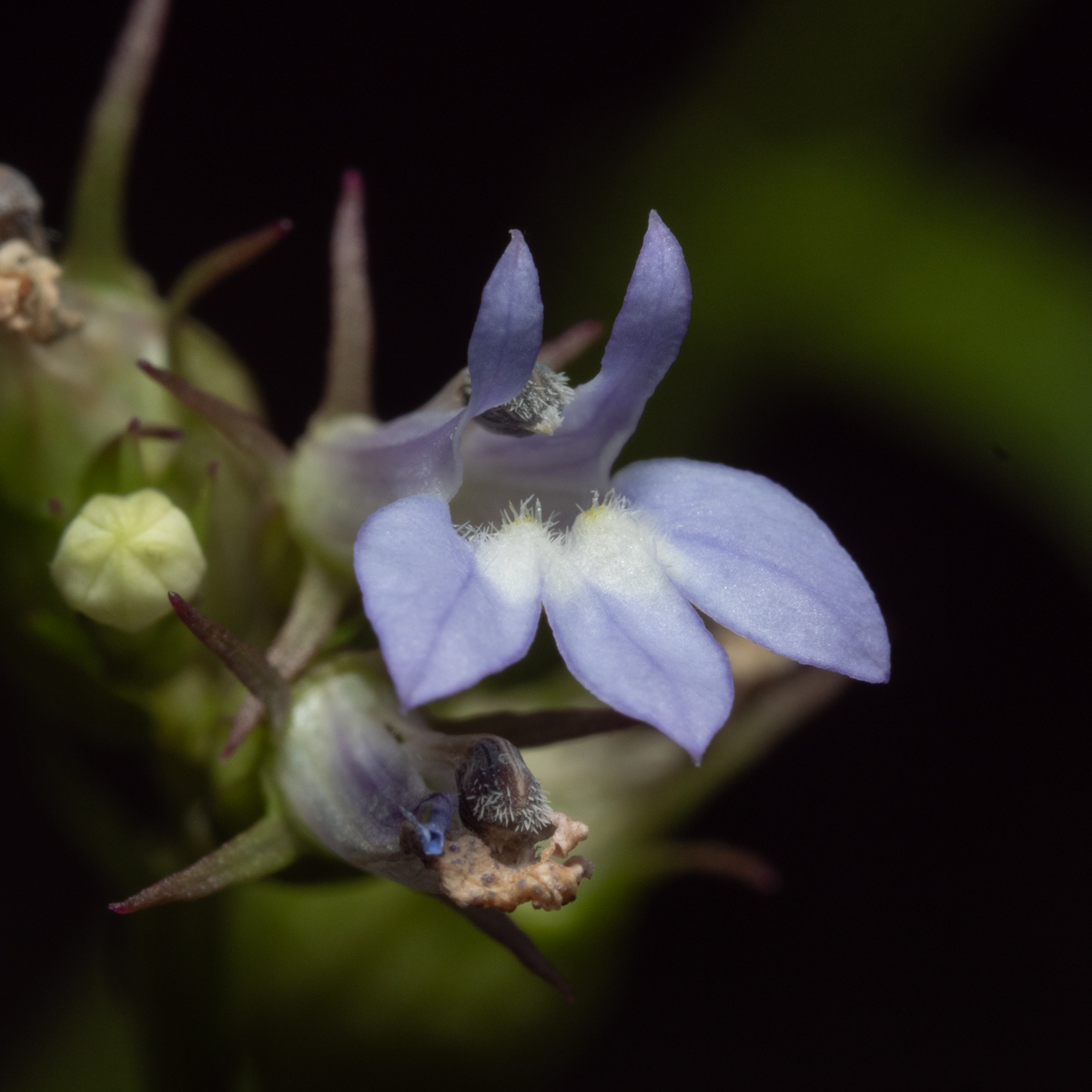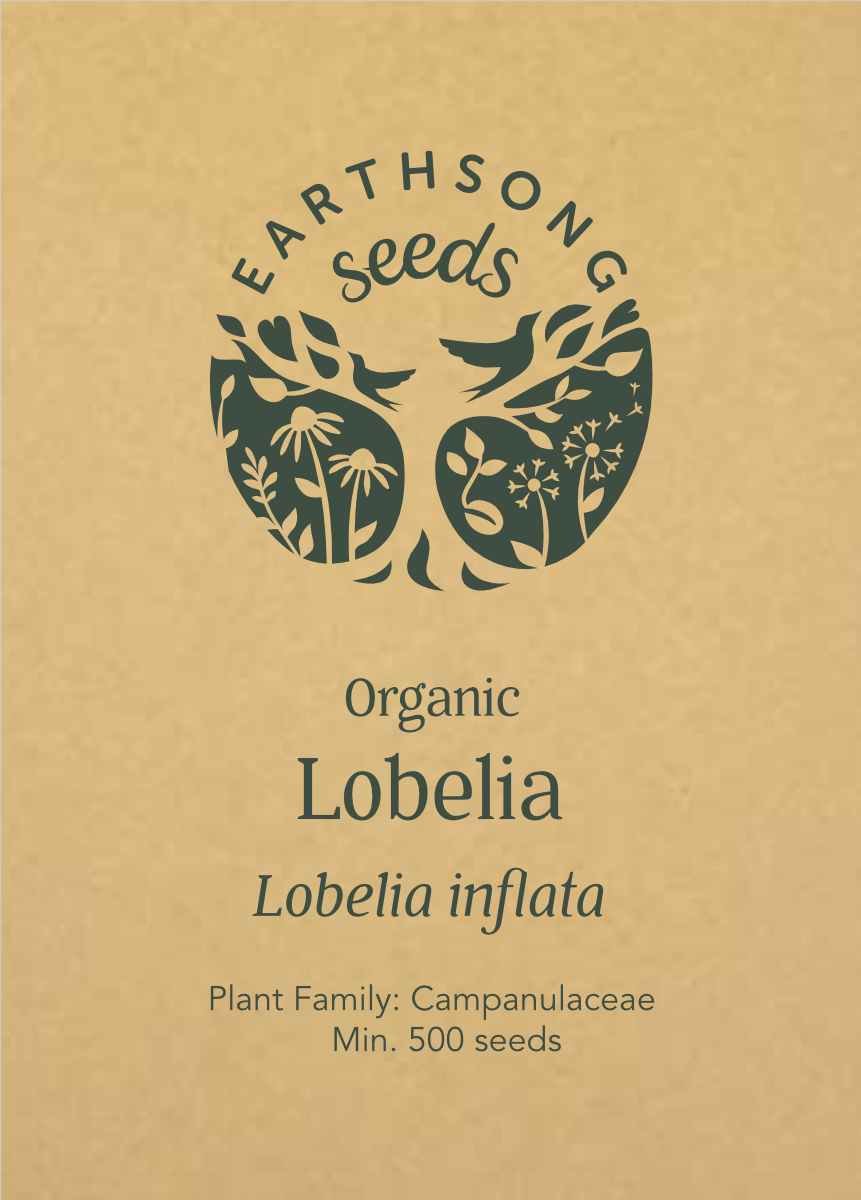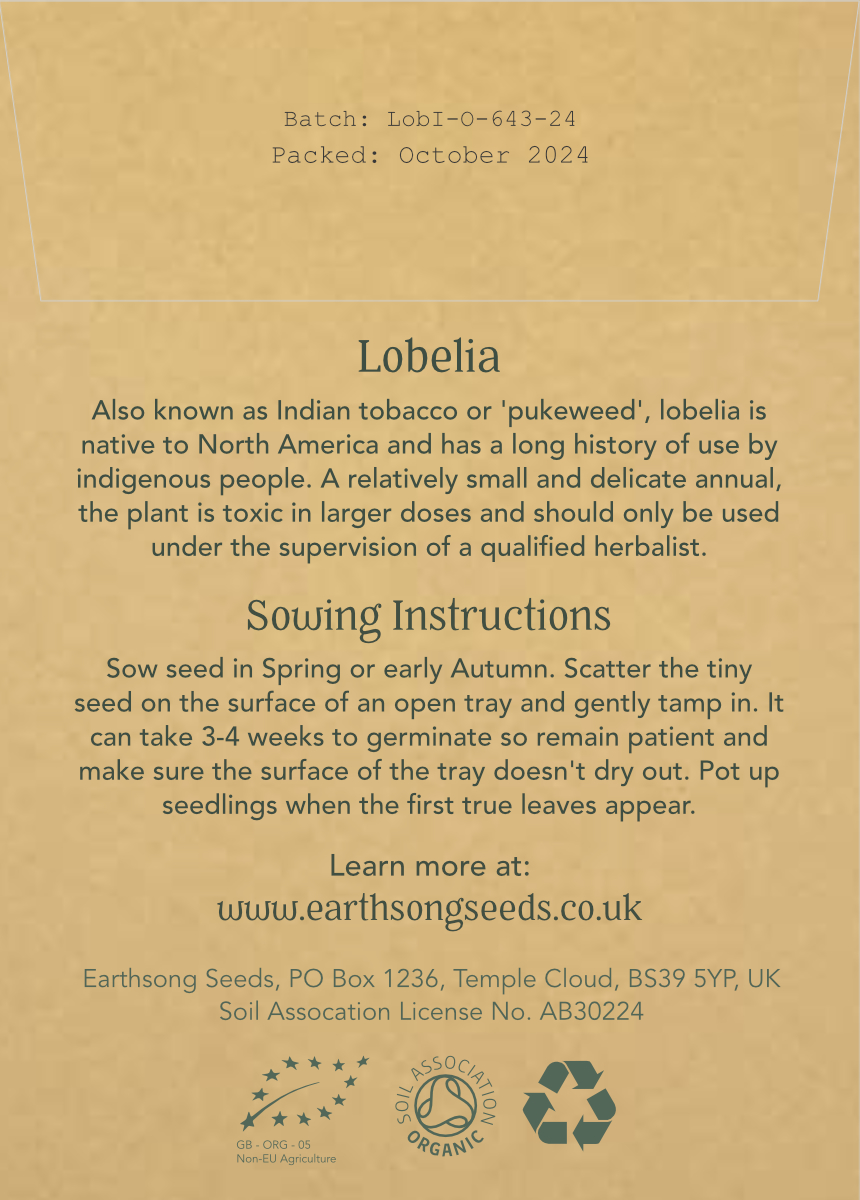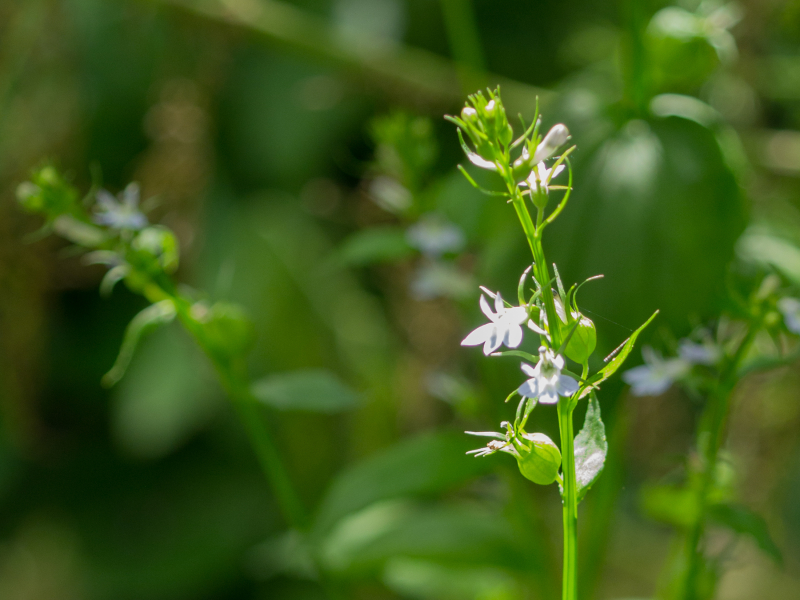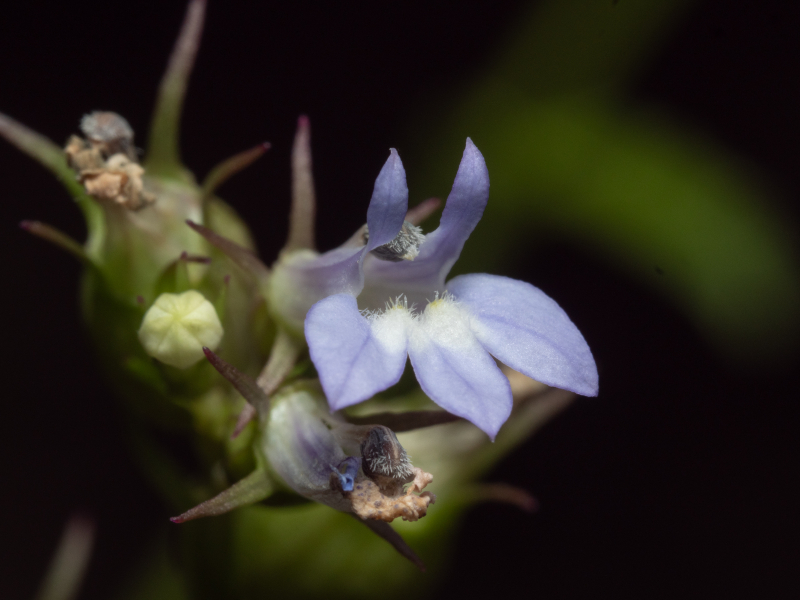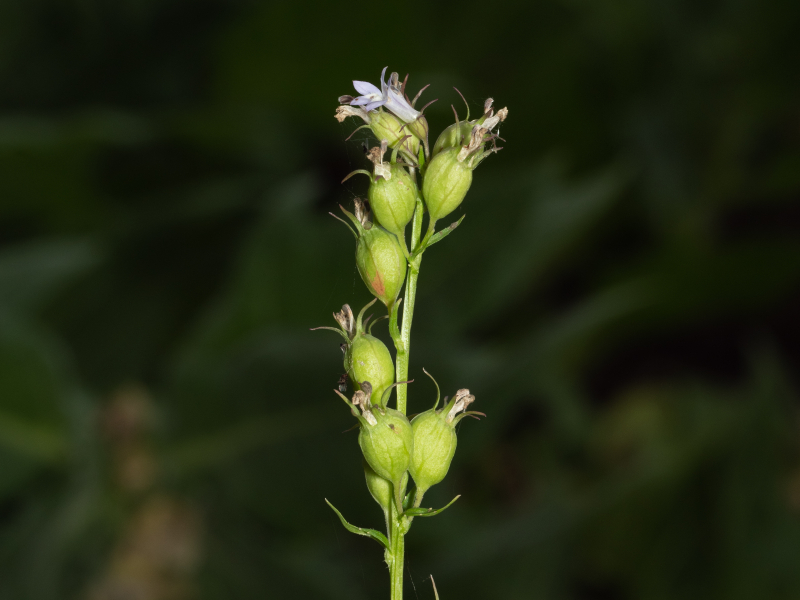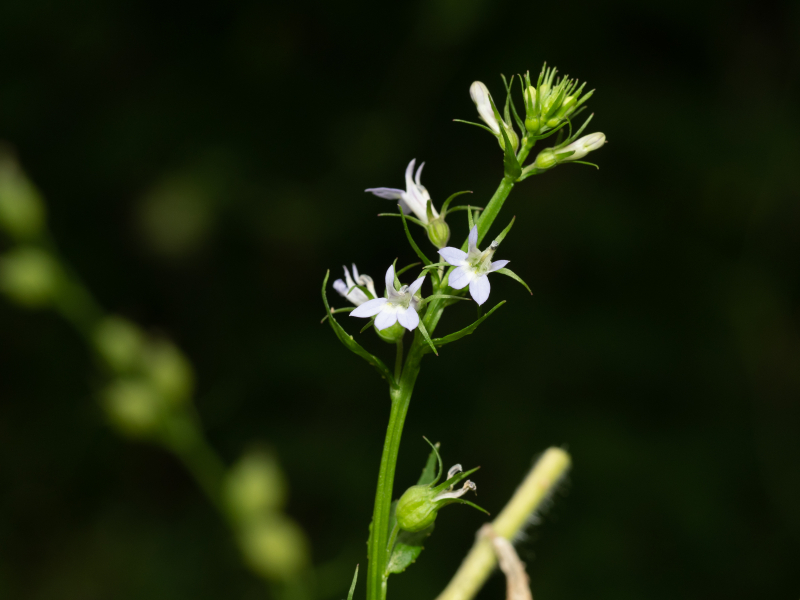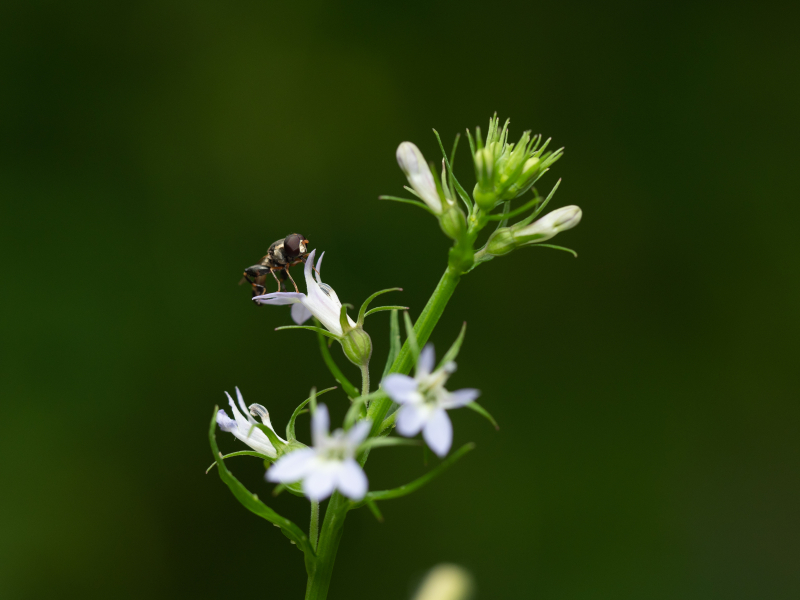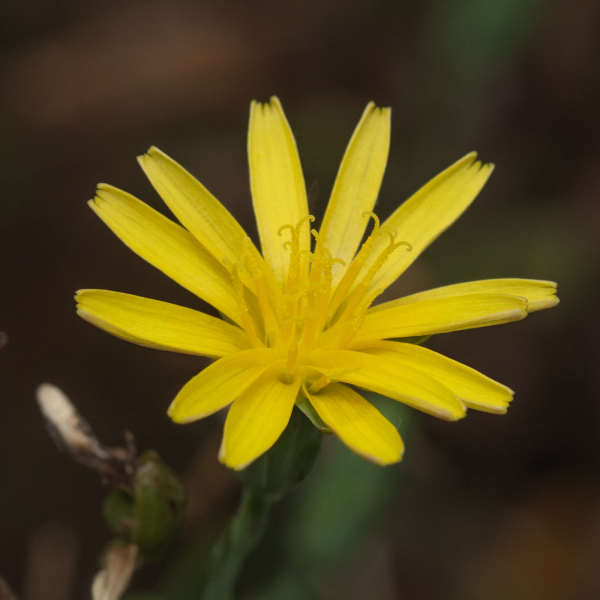Description
Commonly referred to as Indian tobacco, Lobelia was traditionally used by American Indians as an alternative to tobacco and as a treatment for various respiratory ailments.
Lobelia is also referred to as ‘pukeweed’ due to its strong emetic properties, meaning it can induce vomiting at higher doses. Historically, it was used by indigenous groups of North America and early Western herbalists to expel toxins from the body, particularly in cases of poisoning or respiratory congestion. So be warned; this is a potent herb that is toxic in large doses and we advise against using it unless supervised by a qualified herbalist.
Native to North America, lobelia grows in a wide range of habitats, but is mostly found in open, disturbed areas in poor, rocky or sandy soil. The plant itself is small and delicate, growing to around 2 feet in height. It is an annual that produces tiny seeds and equally tiny seedlings that can get a little lost in a bed of bigger plants, so we recommend starting in trays and planting out once they’re a bit bigger.
Take care if you are harvesting the seed pods as they release tiny particles that can act as an irritant in the lungs (yes, ironic given that they are traditionally used to treat irritated lungs). We harvest seeds wearing a high grade face mask.

